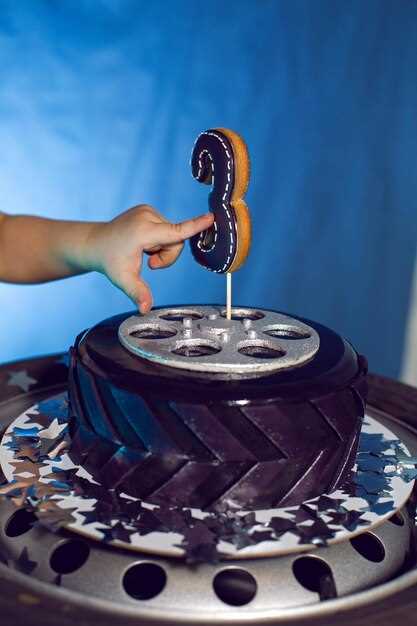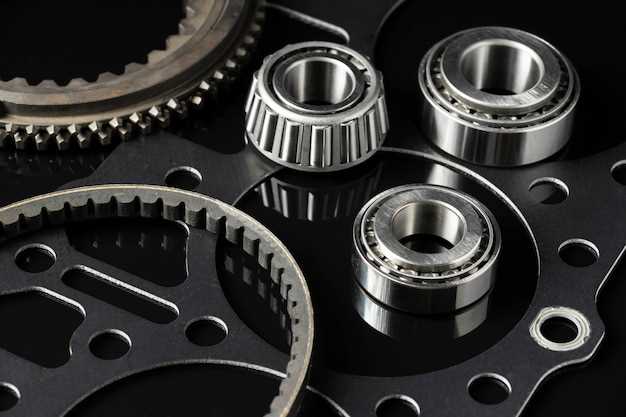
Upgrading your vehicle’s performance often involves making decisions that can significantly impact your driving experience. One such option is the installation of a racing clutch kit. These kits are engineered to provide increased torque capacity and improved responsiveness, making them an enticing prospect for enthusiasts looking to maximize performance.
However, the question remains: is a racing clutch kit a smart investment? To answer this, it is essential to consider several factors, including the type of driving you do, your vehicle’s specifications, and your long-term goals. While racing clutch kits can enhance performance, they may also introduce challenges, such as increased pedal effort and potential drivability issues on the street.
Moreover, the initial cost and installation requirements should not be overlooked. Racing clutch kits can be expensive and often require specialized knowledge for proper installation. Understanding these aspects will help you make an informed decision about whether this upgrade is worth the investment for your specific needs and driving style.
Assessing Performance Gains from Racing Clutch Kits

Upgrading to a racing clutch kit can significantly enhance your vehicle’s performance, especially in high-stress driving conditions. One of the primary benefits of these kits is increased torque transfer, which allows for quicker acceleration. A racing clutch is designed to handle higher power outputs and provide a more responsive engagement compared to standard clutches.
Another advantage of racing clutch kits is their ability to reduce slip during gear changes. This minimal slip ensures that more power generated by the engine is effectively utilized, translating to better lap times and improved overall performance on the track. Additionally, the materials used in racing clutches often have higher heat tolerance, which means they can withstand intense racing conditions without fading or losing effectiveness.
Furthermore, the installation of a racing clutch kit can lead to improved pedal feel and engagement precision. Drivers often report that the enhanced feedback helps them execute more precise gear shifts, which can be crucial during intense racing scenarios. A better engagement point can also contribute to overall driver confidence, translating to faster entry and exit through corners.
It’s essential to consider, however, the potential trade-offs of such an upgrade. While racing clutches offer significant performance gains, they may also lead to increased wear and a harsher driving experience on the street. Factors such as noise, vibration, and pedal effort can be more pronounced compared to a stock clutch. Ultimately, the decision to upgrade should align with your specific performance goals and how you plan to use your vehicle.
In conclusion, evaluating the performance gains from racing clutch kits involves balancing the benefits of increased torque transfer, reduced slip, and improved driver feedback with the potential drawbacks. For serious racers and enthusiasts, this upgrade often proves to be a valuable investment in achieving superior performance.
Cost-Benefit Analysis of Upgrading to Racing Clutch Kits

Upgrading to racing clutch kits can significantly impact a vehicle’s performance, especially for serious motorsport enthusiasts or those engaged in high-performance driving. However, it’s essential to evaluate the costs associated with this investment against the potential benefits.
The primary cost of upgrading to a racing clutch kit includes not just the price of the kit itself but also labor costs associated with installation. Racing clutch kits are typically more expensive than standard ones due to their advanced materials and design tailored for high-stress conditions. Furthermore, they often require a specialized installation, which can add to overall expenses.
On the benefits side, racing clutch kits offer enhanced grip and durability, which can lead to improved acceleration and shifting performance. They are engineered to handle higher torque loads and provide a quicker response, making them suitable for track day enthusiasts or competitive racers. Additionally, a better-performing clutch can contribute to the longevity of the transmission by reducing wear during high-performance driving.
When assessing the cost-benefit ratio, consider how much you drive in competitive or high-performance scenarios. For occasional racers, the return on investment might be minimal compared to dedicated racers who benefit greatly from improved performance. Moreover, racing clutches often require a more aggressive engagement, which can affect everyday drivability and comfort.
Ultimately, the decision to invest in a racing clutch kit should be based on individual driving goals, frequency of use, and budget. Careful consideration of the performance enhancements versus the financial implications will help in determining whether this modification is a worthy investment for your driving style.
Choosing the Right Racing Clutch Kit for Your Vehicle
When it comes to enhancing your vehicle’s performance on the track, selecting the appropriate racing clutch kit is crucial. The right clutch can significantly improve your vehicle’s acceleration, responsiveness, and overall performance. Below are some key factors to consider when making your choice.
1. Vehicle Compatibility: Ensure that the racing clutch kit you select is specifically designed for your vehicle’s make and model. Compatibility affects performance and installation ease. A kit made for your vehicle will provide the best fit and functionality.
2. Clutch Material: Racing clutches are typically made from various materials such as organic compounds, ceramic, or graphite. Each material offers different performance characteristics. For example, ceramic clutches provide better heat resistance and can handle higher torque loads, making them suitable for high-performance applications.
3. Torque Capacity: Assess your vehicle’s horsepower and torque requirements. A racing clutch kit should match or exceed the torque output of your engine to prevent slippage during heavy acceleration. Choosing a kit with a higher torque capacity ensures reliability under extreme conditions.
4. Engagement Type: Racing clutches come with different engagement styles, such as sprung or unsprung. Sprung clutches offer smoother engagement, which is beneficial for street use, while unsprung clutches provide a more direct feel, ideal for racing environments. Consider your driving style and preferences when making this decision.
5. Weight: The weight of the clutch kit can impact your vehicle’s performance. Lightweight options can reduce rotational mass and improve throttle response, while heavier options may offer increased durability. Assess your performance goals to determine the right balance.
6. Brand Reputation: Research the manufacturers of the racing clutch kits you are considering. Brands with a solid reputation for quality and reliability are more likely to offer products that will perform well under racing conditions. Look for reviews and feedback from other racers to gain insights into their experiences.
By carefully considering these factors, you can choose a racing clutch kit that not only enhances your vehicle’s performance but also meets your specific needs and preferences. Invest wisely to gain a competitive edge on the track.
